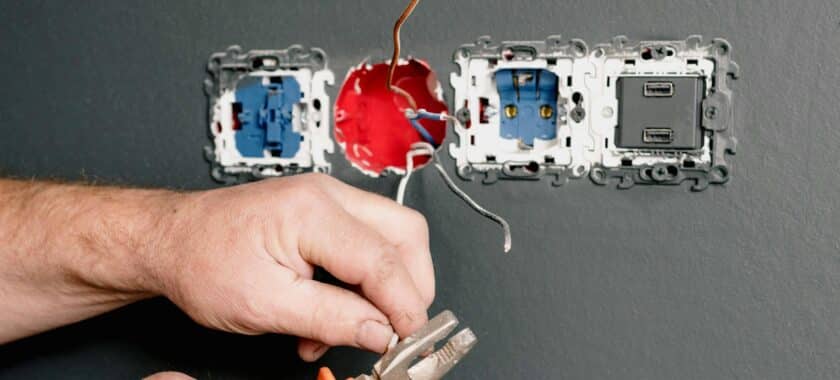GUARANTEED COMFORT & AFFORDABILITY
Whether you need heating, air conditioning, or indoor air quality services, we have an HVAC contractor ready to handle the job.
Working Hours : Monday to Friday (7am - 5pm)

Electrical wiring is designed to last for many years. However, the insulation surrounding the wires begins to degrade slowly. This deterioration reduces their effectiveness and can lead to extensive problems for your home.
If you’ve noticed that your electrical system isn’t working as it used to, you may need to consider a house rewire. Rewiring a house sounds like a significant home improvement project, but it can help prevent a fire from starting in your home. You may also reduce your home insurance and electric bills when you rewire a house.
A professional completes a full house rewire in three to 10 days. However, these projects’ timelines vary based on the home’s age and size. Due to the dangers related to handling electrical components, house rewiring should be completed by a licensed electrician.
Most homes need a full house rewire project every 25 years. If you’re upgrading to more modern and bigger appliances, you’ll want to consider rewiring your home sooner to meet the demand for more power. But there are other reasons you’ll want to connect with qualified technicians for your renovation.
Lights occasionally flicker when a lightbulb isn’t twisted adequately into the socket. However, you may have loose wiring connections if you’ve checked your lightbulbs and your lights continue flickering. Loose wires can cause power surges, electrical shocks, and fires that result in extensive damage.
When you constantly smell something burning in your home, the scent may be coming from your electrical wires. Faulty wiring causes it to short, creating sparks that can damage walls, outlets, and wires. Visible signs of burning on the outlet indicate the issue is occurring behind the wall.
Another clear sign it’s time for a full house rewire is having a loose outlet. When the outlet loosely holds something that you’ve plugged in, the outlet should be repaired immediately, and the wires should be checked for heat damage.
You may notice wires wearing down near the connection point, especially in hotter areas like light fixtures. These connections can eventually become loose and cause burns, shocks, or sparks.
A circuit breaker’s primary job is to cut off the electricity supply to a specific circuit when too much power travels through the wiring. This feature protects your appliances from a power surge. However, if the circuit breaker malfunctions, your home no longer has the same protection. You must schedule a safety inspection if you have a circuit breaker that frequently trips.
Homes built between 1965 and 1973 may have aluminum wiring that needs replacing. Aluminum wiring increases your risk of an electrical fire. An electrician can help you mitigate these risks by inspecting the wire and recommending a complete house rewire.
Faulty wiring is one of the leading causes of house fires in the United States. Protect your home and family by scheduling an electrical inspection with Peak Home Performance. We also assist homeowners with repairs and installations, so call us today to learn about our electrical services.
Leave a Reply